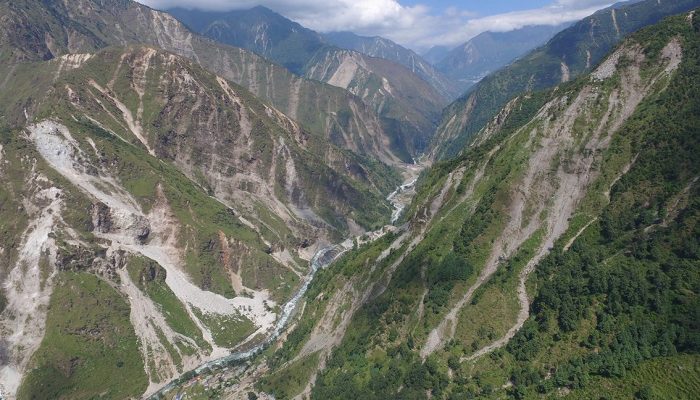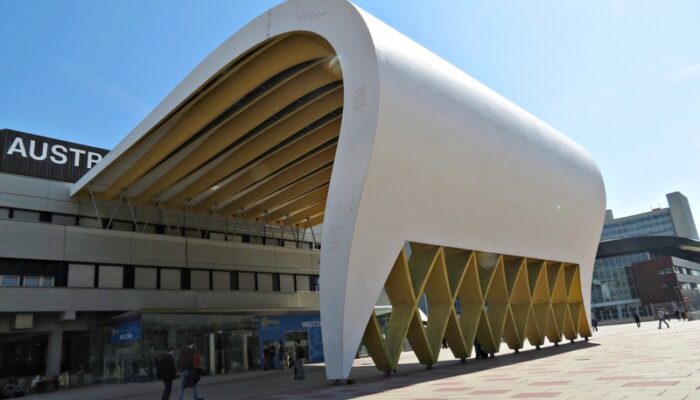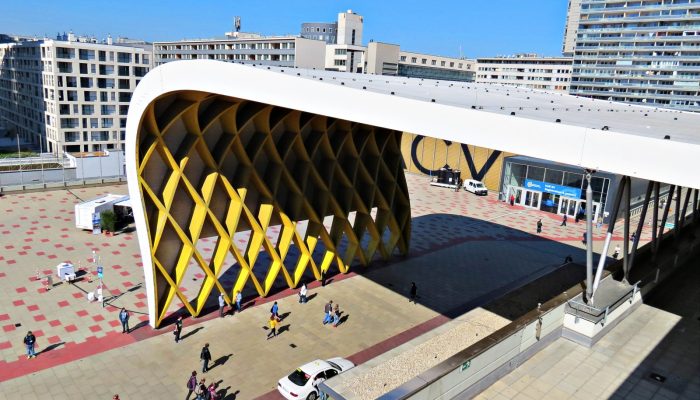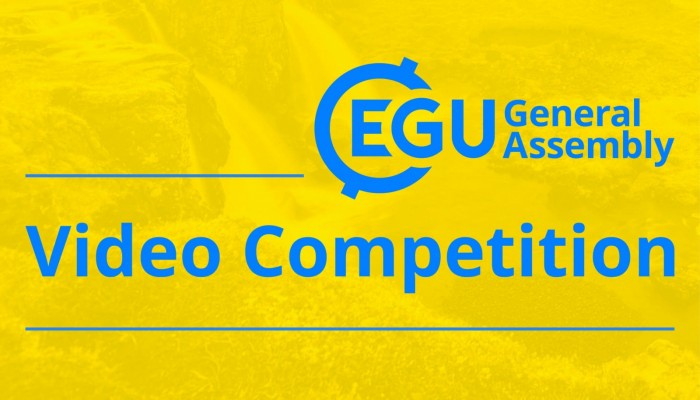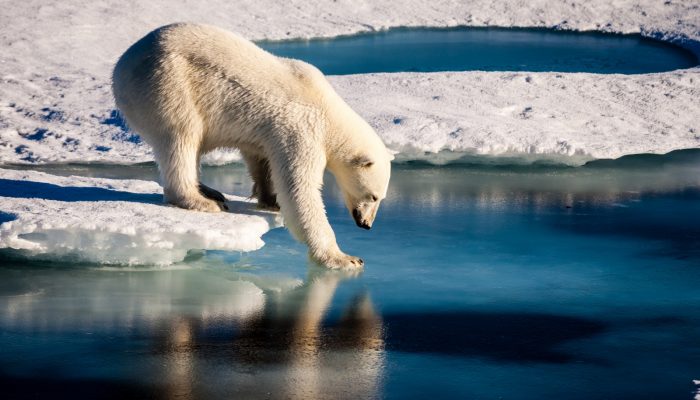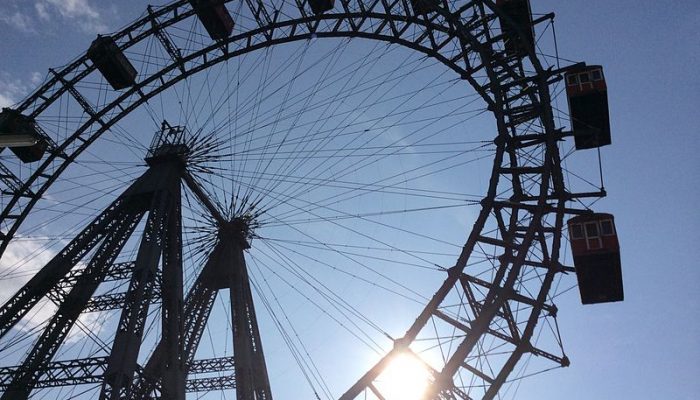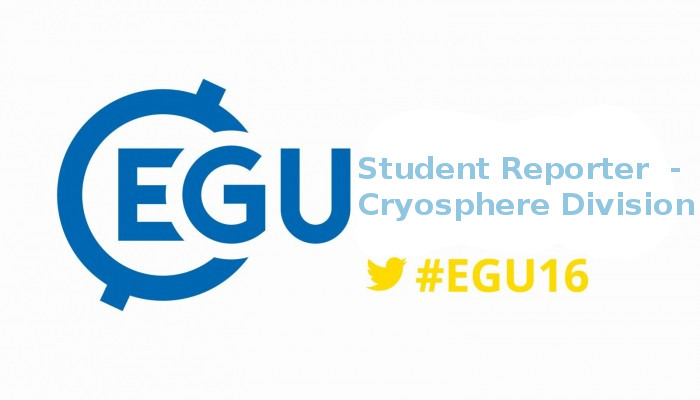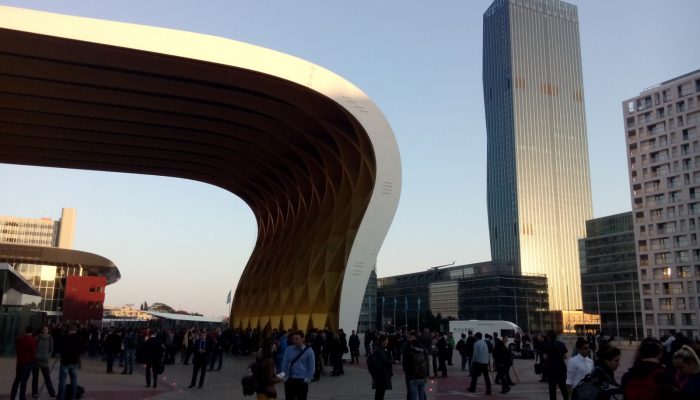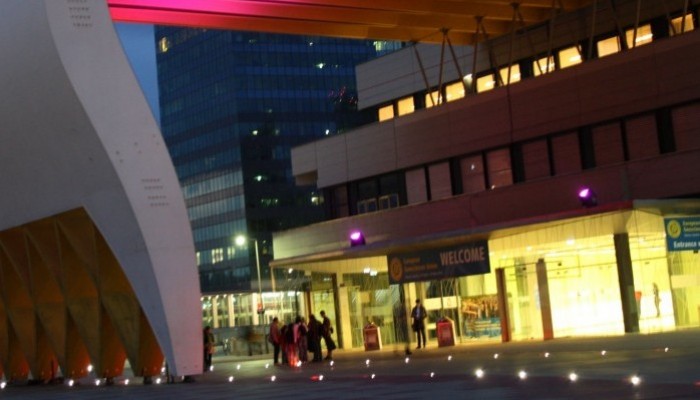Last week at the 2016 General Assembly Sara, one of the EGU’s press assistants, had the opportunity to speak to Koen Van Noten about his research into how crowdsourcing can be used to find out more about where earthquakes have the biggest impact at the surface. Firstly, can you tell me a little about yourself? I did a PhD in structural geology at KULeuven and, after I finished, I started to ...[Read More]
GeoLog
When mountains collapse…
Jane Qiu, a grantee of the Pulitzer Center on Crisis Reporting, took to quake-stricken Nepal last month — venturing into landslide-riddled terrains and shadowing scientists studying what makes slopes more susceptible to failure after an earthquake. The journey proved to be more perilous than she had expected. What would it be like to lose all your family overnight? And how would you cope? It’s wit ...[Read More]
Seismology
EGU GA 2016 – You don’t get older, you get better!
This years general assembly is over and its buzz still ringing in my ears. Here are a few spotlight impressions fresh off my mind. In the coming days and weeks, the complete brand new ECS representative team will present itself on the blog, and we will update you in more detail about highlights and low points of the conference. SCIENCE! Do we have to mention it was amazing? Yes, I’ve heard people ...[Read More]
GeoLog
Imaggeo on Mondays: a big thank you from the EGU
Outside EGU General Assembly 2016. Credit: Kai Boggild/EGU (distributed via imaggeo.egu.eu) The past week in Vienna was a busy one! Hordes of Earth, ocean and planetary scientists came together to present, share and discuss their most recent scientific findings at the 2016 General Assembly. The conference was a great success, with over 4800 oral and 10300 poster presentations, as well as close to ...[Read More]
GeoLog
Communicate Your Science Competition Winner Announced!
Congratulations to Beatriz Gaite, the winner of the Communicate Your Science Video Competition 2016. Beatriz is a researcher at the department of Earth’s Structure and Dynamics and Crystallography at the Instituto de Ciencias de la Tierra Jaume Almera (ICTJA-CSIC), in Spain. Display "Subtle Whisper Of The Earth by Beatriz Gaite" from YouTube Click here to display content from YouTu ...[Read More]
GeoLog
Announcing the winners of the EGU Photo Contest 2016!
The selection committee received over 200 photos for this year’s EGU Photo Contest, covering fields across the geosciences. Participants at the 2016 General Assembly have been voting for their favourites throughout the week of the conference and there are three clear winners. Congratulations to 2016’s fantastic photographers! In addition, this year, to celebrate the theme of the EGU 2016 General ...[Read More]
GeoLog
What’s on in Vienna this weekend
The General Assembly is coming to an end, with only one full day left to go. Many of the participants will make their way home over the weekend, but if you’ve chosen to stay on for a little longer, then this list of cultural activities and things to do in Vienna might just be the ticket! Vienna Blues Spring Festival What’s on this weekend What better way to relax after a long week of exciting scie ...[Read More]
Cryospheric Sciences
When Cryospheric Research Transforms Lives
My name is Kathi Unglert, and I’m reporting from the EGU 2016 General Assembly as part of the EGU student reporter programme. Below is my second contribution to the Cryosphere Blog – this time about how cryosphere research can have a real impact on people’s lives. Antoni Lewkowicz – he’s famous, according to a comment I overheard in Tuesday’s PICO session on applied geophysics in cryosphere ...[Read More]
Cryospheric Sciences
Image of The Week – EGU General Assembly 2016
The EGU General Assembly, which takes place each year in Vienna, Austria, draws to a close today. Attended by nearly 13,650 participants from 111 countries, with around a third of those being students – a great turn-out for this vital part of the early career scientists (ECS) community! It has been a very productive meeting for the cryosphere division with a huge number and variety of oral ...[Read More]
GeoLog
At the Assembly: Friday highlights
The conference is coming to a close and there’s still an abundance of great sessions to attend! Here’s our guide to getting the most out of the conference on its final day. Boost this information with features from EGU Today, the daily newsletter of the General Assembly – pick up a paper copy at the ACV entrance or download it here. The final day of the conference kicks off with the last Union Ses ...[Read More]


